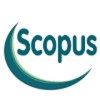Research Article
Issue Reviewers

Ahmet Tanhan received his PhD in counseling and counselor education at University of North Carolina at Greensboro (UNC Greensboro; Greensboro, North Carolina, USA), his Master of Science (MS) in Clinical (Community) Mental Health at University of Rochester (UR, Rochester, New York, USA), and his BS in counseling at Ege University (Izmir, Turkey). He is currently working with the following institutions Economic and Social Research Center – ESAM (Ankara, Turkey), Department of Counseling at University of North Carolina at Greensboro (North Carolina, USA) and Adiyaman University (Adiyaman, Turkey); Institute for Muslim Mental Health (Michigan, USA); Association for Contextual Behavioral Sciences, Turkey Chapter (Istanbul, Turkey). Ahmet is interested in how to mental health services to enhance wellbeing at individual, group and community levels. He is interested both in positive psychology and psychopathology. He recently has focused more on the use of Online Photovoice (OPV) in many diverse topics and majors. Additionally, he has been working on Acceptance and Commitment Therapy (ACT) and Process-Based Therapy (PBT).
Ahmet TANHAN, BS, MS, PhD

 Web
Web










Yazar Ekinci 1985 yılında Mersin’de doğdu. İlk, orta ve lise öğrenimini Mersin’de tamamlamıştır. 2008 yılında Atatürk Üniversitesi Kazım Karabekir Eğitim Fakültesi Rehberlik ve Psikolojik Danışmanlık Anabilim Dalı’ndan mezun olmuştur. 2013 yılında Necmettin Erbakan Üniversitesi Rehberlik ve Psikolojik Danışmanlık Anabilim Dalı’nda bilim uzmanlığı, 2019 yılında ise doktora derecesini, Mart 2024 yılında doçent unvanını almıştır. 2008 ile 2017 yılları arasında Adana ve Konya’da Millî Eğitim Bakanlığı’na bağlı ilk ve orta eğitim kurumlarında okul psikolojik danışmanı olarak görev yaptı. 2013 yılında TFF Futbol Psikolojik Performans Danışmanlığı lisansını aldı. 2013 ile 2018 yıllarında futbol Konyaspor Futbol Kulübünde futbol psikolojik performans danışmanlığı yaptı. 2017 ile 2021 yılları arasında Karamanoğlu Mehmetbey Üniversitesi Kazım Karabekir Meslek Yüksek Okulu’nda Sosyal Hizmetler bölümünde öğretim görevlisi olarak çalıştı. 2021 yılından itibaren Karamanoğlu Mehmetbey Üniversitesi Eğitim Fakültesi Rehberlik ve Psikolojik Danışmanlık Anabilim Dalı’nda öğretim üyesi olarak çalışmalarını sürdürmektedir. Yazar evli ve iki çocuk sahibidir.



Aktu, 2006 yılında İnönü Üniversitesi Psikolojik Danışmanlık ve Rehberlik alanında lisans mezunu oldu. Aynı alanda 2015 yılında Gaziosmanpaşa Üniversitesi’nde yüksek lisans ve 2021 yılında Atatürk Üniversitesi’nde doktora eğitimini tamamladı. Yüksek lisans çalışmasında ilk yetişkinlik dönemindeki bireylerin yaşam yapılarını derinlemesine araştırdı. Doktora çalışasında ise Bilişsel Davranışçı Terapi odaklı çocuk istismarını önleme psikoeğitim programını geliştirip ebeveynler üzerindeki etkisini inceledi.
Dr. Yahya AKTU, Evlilik ve Aile Danışmanlığı, Bilişsel Davranışçı Terapi Odaklı Oyun Terapisi ve Çözüm Odaklı Kısa Süreli Terapi alanlarında eğitim aldı. Özellikle Kız Çocuklarının Okullaşmasının Arttırılması Projesi (KEP-II) kapsamında İl uzmanı olarak görev aldı. Aktu, pozitif ebeveynlik, çocuk istismarını önleme, pozitif aile danışmanlığı, ebeveynlik stresi konularında çalışmalarını yürütmektedir.
Doç. Dr. Yahya AKTU Sosyal Hizmetler ve Danışmanlık Bölümü, Eruh M.Y.O., Siirt Üniversitesi. y.aktu@siirt.edu.tr. ORCID ID: https://orcid.org/0000-0002-5540-7399.
Aim & Scope
Aim of the Journal
Turkish Psychological Counseling and Guidance Journal, published by Turkish Psychological Counselling and Guidance Association (Turkish PCG-Association) is an international peer-reviewed journal.
Turkish Psychological Counseling and Guidance Journal aims to contribute to the psychological well-being, happiness and development of the society. Therefore, the journal attaches importance to the following:
- Helping individuals, families and psychological counselling professionals to develop within the scope of foundation purposes and social responsibility policies of Turkish PCG-Association, a non-governmental organization.
- Contributing to the development of Psychological Counselling and Guidance and helping to bring solutions to the current problems.
- Hosting the theoretical and practical research about psychological counselling and guidance needs of individuals and especially of children and teens.
- Contributing to the psychological well-being of every individual in our country and the world, supporting personal and educational development, helping with career planning, providing family counselling and guidance, hosting scientific research that will contribute to the development of psychological counselors’ professional skills and knowing the individual better.
- Disseminating the academic studies that benefit the professional development of the counselors and academicians who present tangible solutions to problems in their field at all stages of education from pre-school to higher education and that work mainly at Ministry of Education, and institutions like Ministry of Justice, Ministry of Home Affairs, Ministry of Famiy and Social Policies, Turkish Labour Agency and private psychological counselling centers.
- Promoting and maintaining international and inter-disciplinary cooperations to help counsellors with their professional development and better quality education.
!! From 30 November 2023, English language proofreading will be required for accepted articles to ensure language quality.
Focus and Scope
The publication focus of the Turkish Psychological Counseling and Guidance Journal is improving psychological counselling and guidance at schools, providing better quality psychological counselling and guidance education, supporting the improvement of those working in this field, production and transfer of innovation and producing joint content together with related disciplines. The Journal prioritizes assuming the role of a mediator in the production of a sustainable development and shared wisdom for psychological counselling and guidance which gains more and more importance both in Turkey and the world.
Moreover, within the scope of its aims, Turkish Psychological Counseling and Guidance Journal focuses on studies that help school counselors to get more professional, serve as a bridge between theory and practice by contributing directly to school PCG applications, provide a new approach to holistic PCG services in school and ecosystem of societies, evaluate the local and current problems of Turkish PCG in its own context and make international comparisons, help the methodology and research potential of PCG to grow, contribute to the development of professional principles, values, responsibilities and ethical codes, contribute to the development of equipment, applications and methods to be used by PCG professionals,are aimed to increase the intellectual and scientific accumulation in the field of PCG In addition to these, the following types of studies are also within the publication scope of Turkish PCG Journal:
- Studies that develop applications and evaluate fundamental problems in education with respect to psychological counselling and guidance in preschool, primary and secondary school levels and that.
- Studies helping PCG professionals in active work and other professionals to improve their competencies and to develop training strategies. Studies that scrutinize education models, aiming that future school counselors/psychological counselors become better qualified professionals.
- Studies that include innovation and applied research in personal, educational and professional counselling and guidance.
- Studies including meta-analysis, content analysis, profile analysis and conducted with big research groups or samples.
- Studies that develop and evaluate a new model or strategy for psychological counselling and guidance even if in theory.
- Studies that develop and support family counselling and guidance.
- Multidisciplinary and transdisciplinary studies.
- Research about the development of quality research tools that can be used in academic research or PCG applications at schools.
- Research that analyze individual differences and development processes.Technology integration studies helping to improve PCG applications.
Limitations and Returned Applications
Studies conducted in the areas indicated below are out of the scope of Turkish Psychological Counselling and Guidance Journal, and they are not accepted for review:
- Studies that are related only with clinical applications or directly with Psychiatry.
- Studies that solely focus on content about sociology or social services.
- Studies that ignore the priorities and needs of PCG even if they relate educational history or philosophy with behavioral sciences.
- Research that does not bear a direct relation to psychological counselling and guidance services at schools although it may be conducted on candidate teachers and psychological well-being.
- Research that does not contribute directly to PCG applications despite the fact that it uses psychology concepts and is conducted on samples selected from Nursing, Police and Forensic matters etc.
!! From 30 November 2023, English language proofreading will be required for accepted articles to ensure language quality.
Author Guidelines
!! From 30 November 2023, English language proofreading will be required for accepted articles to ensure language quality.
The Turkish Psychological Counseling and Guidance Journal follows the recommendations of the Publication Manual of the American Psychological Association (APA 7th Edition) and it is required that all manuscripts adhere to APA style 7.
The Turkish Psychological Counseling and Guidance Journal is published in English.
Ethical Principles and Publication Policy
ETHICS POLICY
Publication Ethics
The publication process at Turkish PCG Journal is the basis of the improvement and dissemination of information objectively and respectfully. Therefore, the procedures in this process improves the quality of the studies. Peer-reviewed studies are the ones that support and materialize the scientific method. At this point, it is of utmost importance that all parties included in the publication process (authors, readers and researchers, publisher, reviewers and editors) comply with the standards of ethical considerations. Turkish PCG Journal expects all parties to hold the following ethical responsibilities.
The following ethical duties and responsibilities are written in the light of the guide and policies made by Committee on Publication Ethics (COPE).
Ethical Responsibilities of Authors
The authors who submit their manuscripts to Turkish PCG Journal are expected to comply with the following ethical responsibilities:
Author(s) must submit original studies to the journal. If they utilize or use other studies, they must make the in-text and end-text references accurately and completely.
People who have not contributed to the study at the intellectual level should not be indicated as author.
If the manuscripts submitted to be published are subject of conflicting interests or relations, these must be explained.
During the review process of their manuscripts, author(s) may be asked to supply raw data. In such a case, author(s) should be ready to submit such data and information to the editorial and scientific boards.
Author(s) should document that they have the participants' consent and the necessary permissions related with the sharing and research/analysis of the data that are used.
Author(s) bears the responsibility to inform the editor of the journal or publisher if they happen to notice a mistake in their study which is in early release or publication process and to cooperate with the editors during the correction or withdrawal process.
Authors cannot submit their studies to multiple journals simultaneously. Each submission can be made only after the previous one is completed. A study published in another journal cannot be submitted to Turkish PCG Journal.
Author responsibilities of a study whose review process has begun cannot be requested to change (e.g.: adding an author, reordering of author names).
Ethical Responsibilities of Editors
The editor and field editors of Turkish PCG Journal should hold the following ethical responsibilities that are based on the guides "COPE Code of Conduct and Best Practice Guidelines for Journal Editors" and "COPE Best Practice Guidelines for Journal Editors" published as open Access by Committee on Publication Ethics (COPE).
General duties and responsibilities
Editors are responsible for each study published in Turkish PCG Journal. In this respect, the editors have the following roles and responsibilities:
- Making efforts to meet the demand for knowledge from readers and authors,
- Ensuring the continuous development of the journal,
- Managing the procedures aimed to improve the quality of the studies published in the journal,
- Supporting freedom of expression,
- Ensuring academic integrity,
- Following the procedures without making concessions on intellectual property rights and ethical standards,
- Being transparent and clear in issues that require correction or explanation.
Relationships with Readers
Editors must make decisions taking into consideration the knowledge, skills and expectations of all readers, researchers and practitioners need. They must also ensure that the published studies contribute to literature and be original. Moreover, they must take notice of the feedback received from researchers and practitioners and provide explanatory and informative feedback.
Relationships with Authors
Editors have the following duties and responsibilities in their relations with authors:
- Editors must make positive or negative decisions about the studies' importance, originality, validity, clarity in wording and suitability with the journal's aims and objectives.
- Editors must accept the studies that are within the scope of publication into pre review process unless there are serious problems with the study.
- Editors must not ignore positive suggestions made by reviewers unless there are serious problems with the study.
- New editors, unless there are serious issues, must not change the previous editor's decisions about the studies.
- "Blind Review and Review Process" must be published and editors must prevent possible diversions in the defined processes.
- Editors must publish an "Author's Guide" that is comprehensive enough in answering queries by authors. This guide must be updated regularly.
- Authors should be provided with explanatory and informative feedback.
Relationships with Reviewers
Editors have the following duties and responsibilities in their relations with reviewers:
Editors must
- choose reviewers according to the subject of the study.
- provide the information and guidance reviewers may need during the review process.
- observe whether there are conflicting interests between reviewers and authors.
- keep the identities of reviewers confidential in blind review.
- encourage the reviewers to review the manuscript in an unbiased, scientific and objective tone.
- evaluate reviewers regularly based on criteria like performance and timing.
- develop practices and policies that increase the performance of reviewers.
- take necessary steps to update the reviewer pool dynamically.
- prevent unkind and unscientific reviews.
- make effort to ensure the reviewer pool has a wide range.
Relationships with the Editorial Board
Editors must make sure that the members of the editorial board follow the procedures in accordance with the publication policies and guidelines, and must inform the members about the publication policies and developments. The editors must also train new members of the editorial board and provide the information they need.
Moreover, editors must
- ensure that the members of the editorial board review the manuscripts in an unbiased and independent manner.
- select the new members of the editorial board from those who can contribute to the journal and are qualified enough.
- send manuscripts for review based on the subject of expertise of the editorial board members.
- regularly communicate with the editorial board.
- arrange regular meetings with the editorial board for the development of publication policies and the journal.
Relationships with the Journal's Owner and Publisher
The relationship between the editors and publisher is based on the principle of the independency of editors. All the decisions made by the editors are independent of the publisher and the owner of the journal as required by the agreement made between editors and publisher.
Editorial and Blind Review Processes
Editors are obliged to comply with the policies of "Blind Review and Review Process" stated in the journal's publication policies. Therefore, the editors ensure that each manuscript is reviewed in an unbiased, fair and timely manner.
Quality Assurance
Editors must make sure that articles in the journal are published in accordance with the publication policies of the journal and international standards.
Protection of Personal Information
Editors are supposed to protect the personal information related with the subjects or visuals in the studies being reviewed, and to reject the study if there is no documentation of the subjects' consent. Furthermore, editors are supposed to protect the personal information of the authors, reviewers and readers.
Encouraging Ethical Rules
Editors are supposed to protect human and animal rights in the studies being reviewed and must reject the experimental studies which do not have ethical and related committee’s approval for the population given in such studies.
Turkish PCG Journal considers it vital that in manuscripts ethical codes be defined for each and every işlem and field because the journal, by its very nature, values and complies with these codes sensitively. It reserves the right to ask for additional documents, evidence and explanation where necessary. Editors are in charge of taking necessary action when the required documents are not provided within a reasonable amount of time.
Precautions against possible Abuse and Malpractice
Editors are supposed to take precautions against possible abuse and malpractice. They must conduct investigations meticulously and objectively in determining and evaluating complaints about such situations. They must also share the results of the investigation.
Ensuring Academic Integrity
Editors must make sure that the mistakes, inconsistencies or misdirections in studies are corrected quickly.
Protection of Intellectual Property Rights
Editors are responsible for protecting the intellectual property rights of all the articles published in the journal and the rights of the journal and author(s) in cases where these rights are violated. Also, editors must take the necessary precautions in order to prevent the content of all published articles from violating the intellectual property rights of other publications. See Plagiarism Check
Constructiveness and Openness to Discussion
Editors must
- pay attention to the convincing criticism about studies published in the journal and must have a constructive attitude towards such criticism.
- grant the right of reply to the author(s) of the criticized study.
- not ignore or exclude the study that include negative results.
Complaints
Editors must examine the complaints from authors, reviewers or readers and respond to them in an explanatory and enlightening manner.
Political and Economic Apprehensions
Neither the owner of the journal, publisher or any other political or economic factor can influence the independent decision taking of the editors.
Conflicting Interests
Editors, acknowledging that there may be conflicting interests between author(s), reviewers and other editors, guarantee that the publication process of the manuscripts will be completed in an independent and unbiased manner
Ethical Responsibilities of Reviewers
The fact that all manuscripts are reviewed through "Blind Review" has a direct influence on the publication quality. This process ensures confidentiality by objective and independent review. The review process at Turkish PCG Journal is carried out on the principle of double blind review. Reviewers do not contact the authors directly, and the reviews and comments are conveyed through the journal management system. In this process, the reviewer views on the evaluation forms and full texts are assigned to the author(s) by the editor. Therefore, the reviewers doing review work for Turkish PCG Journal are supposed to bear the following ethical responsibilities:
Reviewers must
- agree to review only in their subject of expertise.
- review in an unbiased and confidential manner.
- inform the editor of the journal if they think that they encounter conflict of interests and decline to review the manuscript during the review process.
- dispose the manuscripts they have reviewed in accordance with the principle of confidentiality after the review process. Reviewers can use the final versions of the manuscripts they have reviewed only after publication.
- review the manuscript objectively and only in terms of its content and ensure that nationality, gender, religious and political beliefs, and economic apprehension do not influence the review.
- review the manuscript in a constructive and kind tone, avoid making personal comments including hostility, slander and insult.
- review the manuscript they have agreed to review on time and in accordance with the ethical rules stated above.
Ethical Responsibilities of Publisher
Turkish Psychological Counselling and Guidance Association, publisher of Turkish PCG Journal, is a non-profit civil society organization working for the good of the public. As required by its founding policy, Turkish Psychological Counselling and Guidance Association publishes the journal to make its knowledge public at international standards. Therefore, the Board of Turkish Psychological Counselling and Guidance Association is conscious of the fact that they must observe the ethical responsibilities below and act accordingly:
- Editors are responsible for all the processes that the manuscripts submitted to Turkish PCG Journal will go through. Within this framework, ignoring the economic or political interests, the decision-makers are the editors.
- The publisher undertakes to have an independent editorial decision made.
- The publisher protects the intellectual property rights of all the articles published in Turkish PCG Journal and holds the responsibility to keep a record of each unpublished article.
- The publisher bears all the responsibility to take the precautions against scientific abuse, fraud and plagiarism related with editors.
Unethical Behaviour
Should you encounter any unethical act or content in Turkish PCG Journal apart from the ethical responsibilities listed above, please notify the journal by e-mail at info@pdrdergisi.org.
AFTER ACCEPTANCE
At Turkish PCG Journal, the accepted manuscripts undergo the processes of plagiarism detection, preparation of bibliography, cross-reference and reference check, layout and galley, assigning a DOI number and being put into early release. The manuscripts in early release are published in the volume and issue determined by the editorial board.
Since Turkish PCG Journal claims no fees for article review or printing and no subscription fees for access to articles, it has no source of income. However, the following pecuniary obligations of the accepted manuscripts lie with the author(s).
Plagiarism Detection
In accordance with its publishing policies, Turkish PCG Journal oblige each study that has undergone the "Blind Review Process" to be detected for plagiarism to protect the integrity of the study. Therefore, both Turkish and English copies of the study are detected for plagiarism by a company chosen by the editorial board. Incurring fees are paid by the author(s).
The plagiarism detection is done by Turnitin and iThenticate softwares. The matches found in each study after plagiarism detection are analyzed in detail and those matches with correct reference and cross-reference are sorted. In the next step, the mistakes in the remaining matches are determined and reported to the editorial board. The board, then, makes a final decision in the light of the plagiarism detection report. The author(s) may be asked to correct the mistakes listed in the report or the study may be returned to the author(s).
References and Citation Control
Scientific research builds upon previous studies. In new studies, references and attributions to the previous studies are provided within the framework of certain rules. Intentional or unintentional mistakes in scientific studies harm the reliability of the study and publication.
Turkish PCG Journal, in accordance with its publication ethics, considers it to be an obligation for the accepted studies to have correct and complete references and attributions. Therefore, each study, after acceptance, is checked in terms of bibliography, referencing and attribution by a company chosen by the editorial board. Incurring costs lie with the author(s).
The full Turkish and English texts of the accepted studies are processed for bibliography, referencing and attribution check in the following steps:
Bibliography is prepared according to the APA Referencing Style Guide 6th Edition.
It is checked whether the in-text references of the references given in the bibliography are in accordance with rules and regulations; and mistakes are corrected.
Attributions of the in-text references are checked. The author(s) is asked to provide the missing ones, and the incorrect ones are corrected.
For the Turkish full text Turkish rules and regulations of referencing are used, and for the English full texts English rules and regulations of referencing are used.
Layout and Galley
Turkish PCG Journal requires that the articles be printed in a common type of and complete page layout for formal integrity, readability and standards. Therefore, the studies whose plagiarism detection and bibliography preparation is finished, are sent to a company chosen by the editorial board for layout and galley. Incurring costs for page layout and preparation of the copy for print lie with the author(s).
Assigning a DOI Number
Digital Object Identifier (DOI) is a unique access number that enables the identification and accessibility of each article published electronically. It is mandatory that each article published in Turkish PCG Journal or in early release is assigned a DOI number.
After acceptance, the manuscripts which are checked for plagiarism and bibliography and ready for publication are given a DOI number by the Editorial Board.
Language Editing
The language (English) of the manuscripts submitted to Turkish PCG Journal must be accurate in terms of rules of grammar and scientific literature and must have a plain and clear language quality. Manuscripts should be written in fluent language and free of foreign words. If the manuscripts are edited before they are submitted for review, the process of publication gets healthy.
The editorial board demand that the manuscripts be edited for language mistakes during the review process or after acceptance. The author(s) who has been requested to get his/her manuscript edited must do so referring to one of the companies below and present a related document to the editorial board afterwards.
Price Policy
There are no fees payable to submit or publish in this Journal.
Indexes
Journal Boards
Editor-in-chief

Editors




Editorial Board

Başkent Üniversitesi, Eğitim Fakültesi, Eğitim Bilimleri Bölümü, RPD Anabilim Dalı, Eğitim Psikolojisi

Language Editor

Layout Editors

!! From 30 November 2023, English language proofreading will be required for accepted articles to ensure language quality.





